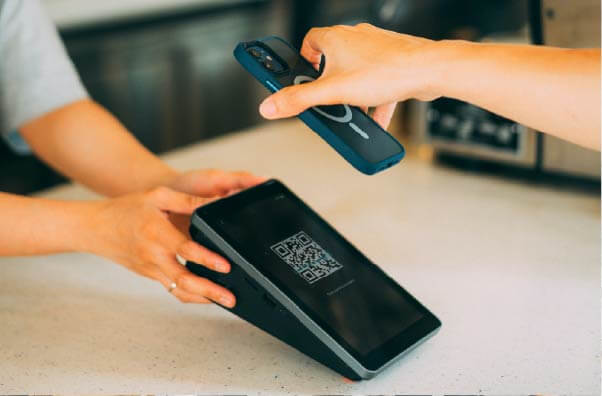Cashless hotels? That’s right, non-cash transactions are slowly taking over, there’s no doubt about it. Credit and debit card payments have become the norm and cashless transactions outnumber cash-based ones at most properties today.
Many hotels have already embraced cash-free operations and haven't looked back since. Others are starting down the same road and quickly see the endless benefits of cashless, automated online payments. This shows that going completely cash-free is no longer just a futuristic dream but a realistic prediction.
Let’s take a look at this topic in more detail, including what are cashless payments for hotels, why they’re important, how to offer this kind of payment, as well as the potential challenges and benefits of this model so that you can make a more accurate decision about whether to go cashless or not.
Table of contents
What are cashless payments for hotels?
A cashless hotel has opened up a world of purely digital transactions where a transfer of electronic money is made through a bank transfer or a card without needing to have cash on hand. This is facilitated through NFC technology (near field communication) taking place in the form of wireless communication.
This system is very common on cruise ships and at festivals, where you swipe a digital watch, a mobile phone or a wristband to make a payment. The benefit of this system is that the platform doesn’t necessarily have to be connected to the internet, instead it relies on two devices being relatively closer together to exchange data and make payments. Learn more about smart payments.
What makes cashless so important in the hospitality industry today?
As our society becomes more and more digital, it’s important that the hospitality industry be up to the challenge to facilitate these kinds of payments to modernize the hotel experience. These kinds of payments are a win-win for both guests and for your property. It can boost customer satisfaction and the overall experience at your hotel, while for your property it proves a way to reinforce your brand, marketing as well as boost sales.
How can hotels offer cashless payments?
There are many ways to switch over to the cashless model. This could be via debit and credit cards, which are convenient and safe; via e-wallets, via payment gateways, which allows you to conduct online transactions using different payment methods; or via any other kind of digital payment like PayPal or Venmo. Find out about other hotel payment tools.
Potential challenges of the hotel cashless model
While going cash-free is an incredibly promising wave of the future, of course no system is perfect. Let’s take a look at some of the potential challenges as well as some common objections from hoteliers.
It’s too expensive
Credit card issuers and cashless wallet providers charge hotels a commission on every transaction, usually around 2% to 3.5%. As more payments become cash-free and because credit card providers have raised their merchant rates repeatedly, hotels’ costs are rising steadily, even if their booking volume stays the same.
It excludes people from certain markets
Using this model can mean you exclude potential customers. This could include guests from countries where people prefer using cash (such as Germany) or members of demographics who stick to cash because they may have a harder time adapting to new technology. They might not have a card or might simply not want to use it, making this kind of offer an unattractive option for them.
While you might fear this could limit your reach, advertising a hotel as cashless can make you very attractive to a whole new audience: people who embrace new technology and value the hotel’s ease and efficiency. And appealing to new target audiences is key to keeping your hotel profitable year after year.
It’s too dependent on a good internet connection
It’s true: regardless of whether you have a data connection, cash always works. When choosing how to accept payments and setting up your entire hotel tech stack for that matter, you need to take into account the reliability of your internet connection.
While it’s true that no connection means no transactions when working in the cloud, in the event that your primary internet connection goes down, all you need is a Wi-Fi hotspot and you’re good to go again. For the vast majority of hotels web connections are reliable enough that this won’t be a concern.
Benefits of running a cashless hotel
Now that we’ve looked at some of the challenges going cashless could bring, let’s go over the advantages hotels can enjoy by doing it right.
Improved security
Both cash and legacy payment systems come with risks and, as a hotelier, you know that every hotel has its stories of money going missing. Why? Because cash is easy to lose or steal, it’s that simple. This can happen on a small scale (e.g. when the occasional banknote disappears from the till) or on a larger scale when human error causes repeated losses.
Apart from being easy to mismanage by staff, cash brings several other security risks such as on-site robbery or the assault of a team member going to the bank to make a deposit. Now, let’s be clear: simply switching to debit and credit card payments using legacy terminals won’t solve all your problems. Credit card fraud involving card details being stolen or fraudsters using stolen cards to pay can still happen. Learn more about data breaches.
Productivity savings
Dealing with cash takes time – not just when handling payments but also at the beginning and end of every shift when staff have to count their float, balance it and go through a handover process. The larger a hotel and the more revenue generating departments it has, the more complex (read: prone to human error) and time-consuming this task becomes.Going cash-free eliminates all that manual work and makes processes throughout the hotel much more efficient.
Smoother guest experience
Since using credit and debit cards or automated online payments is much faster than dealing with cash, guests have a better experience because they get served more quickly and transactions become less invasive. At check-out for example, guests can settle their bill within seconds, without even showing their card. They can even skip the line altogether if a hotel offers an online check-out option where the amount due can be paid online.
Collection of valuable guest data and boosted revenues
Going cash-free creates exciting new possibilities in terms of CRM. Some mobile payment apps and wallets, for example, allow hotels to segment guests and create automated, targeted discounts and promotions. Also, when guests pay by card or sign to their room rather than using ‘real money’, they tend to buy more, simply because it’s easier. The smoother the payment journey, the more positive impacts you will have on revenue.
Conclusion
We’ve looked at cashless hotels, the benefits, the challenges, and how to offer these kinds of payments at your hotel. As payments become more automated, personalized service and engagement once again become the priority, as staff have more time and energy to dedicate to providing the best guest experience possible.
Today’s best systems move the entire payment process online and make it possible to charge cards without using physical terminals and manually inputting credit card details. This opens the door to completely new possibilities in terms of security, efficiency and – most importantly – guest experience. Even if you decide not to abandon cash at your property altogether, you can still offer guests the option of quick, cash-free payments as a perk.
Our hotel payments guide
 Take advantage of the power of automation and the new generation of payment methods in hospitality by downloading our guide
Take advantage of the power of automation and the new generation of payment methods in hospitality by downloading our guide

Author
Mews

Essential hotel technology for general managers
Download now
Hospitality hot takes straight to your inbox


.webp)